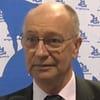Egg Layer “Specialized” course in Utrecht, Netherlands (September 11-22)
Published: May 19, 2017
By: http://www.wvepah.org/
This Layers “Specialized” course, which will take place in the Utrecht Veterinary School from September 11th to 22nd, is an overview of important infectious and non-infectious diseases at different stages of pullets and layers production. The objective of the WVEPAH education program is to offer a highly specialized training on all specific aspects of layers health; pathology, epidemiology, genetics, nutrition, immunology, management, etc., in a format usable in your daily practice. The course also lays the foundation for more in depth studies on specific subjects covered in follow up courses.
STRUCTURE OF THE COURSE
The training is done by professionals for professionals, it is a problem solving approach favoring exchanges on true clinical cases suggested by Course Masters and participants with a part of practical work (wet lab). The formal academic part of the training already known from other sources is intentionally limited but available in course notes or suggested readings.
The training is done by professionals for professionals, it is a problem solving approach favoring exchanges on true clinical cases suggested by Course Masters and participants with a part of practical work (wet lab). The formal academic part of the training already known from other sources is intentionally limited but available in course notes or suggested readings.
COURSE MASTERS
Dr. Mieke Matthijs (NL), Dr. Greg Cutler (US), Dr. Nancy Reimers (US), Eric Gingerich (US), Dr. Ian Rubinoff (US), Dr. Simon Shane (US), Dr. Wil Landman (NL), Dr. Christiaan ter Veen (NL) Moderator: Robert Gauthier (CA), Administrator: Pierre Cadot (FR).
Dr. Mieke Matthijs (NL), Dr. Greg Cutler (US), Dr. Nancy Reimers (US), Eric Gingerich (US), Dr. Ian Rubinoff (US), Dr. Simon Shane (US), Dr. Wil Landman (NL), Dr. Christiaan ter Veen (NL) Moderator: Robert Gauthier (CA), Administrator: Pierre Cadot (FR).
LEARNING OBJECTIVES
- Know how to evaluate the birds’ microenvironment in relation to flock health and welfare.
- Gain advanced knowledge relating to mechanisms of disease causation for infectious and noninfectious diseases.
- Recognize normal poultry tissues and recognize abnormal poultry tissues, characterize lesions, and interpret their significance.
- Understand modern diagnostic technologies including both field and laboratory diagnostics.
- Plan a logical diagnostic approach to the investigation of disease (including the identification of risk and causative factors of poultry diseases).
- Collect appropriate diagnostic samples and perform relevant diagnostic tests for disease investigation.
- Know how to interpret diagnostic results.
- Develop preventive medicine protocols, including biosecurity, coccidiosis, and vaccination.
- Apply the judicious use of antibiotic therapy.
- Know supportive and alternative forms of treatment against pathogens.
FURTHER QUALIFICATION
Participants who complete the Module “Key disciplines in poultry health” including the “regulatory module” taught by representatives of the OIE and a Module “Specialized” could obtain the academic diploma “Certificate in Animal Health: Poultry Production and Health” awarded by the University of Luxemburg and validated worldwide by the OIE. The WVEPAH participants will join the international community of experts in Avian Health and Production.
Source
http://www.wvepah.org/Related topics:
Mentioned in this news release:

Recommend
Comment
Share
Recommend
Reply
Recommend
Reply
Engormix
30 de mayo de 2017
Thank you for your messages. You can request information to the person responsible by clicking the link "Ask about this news release" at the end of the article.
Recommend
Reply
Elanco
29 de mayo de 2017
I am intersted to join this couse as well. Please provide more information how to enroll it through my e-mail address : mynamethanakrid@gmail.com. Thank you so much.
Recommend
Reply
Recommend
Reply
Recommend
Reply
Recommend
Reply

Would you like to discuss another topic? Create a new post to engage with experts in the community.









